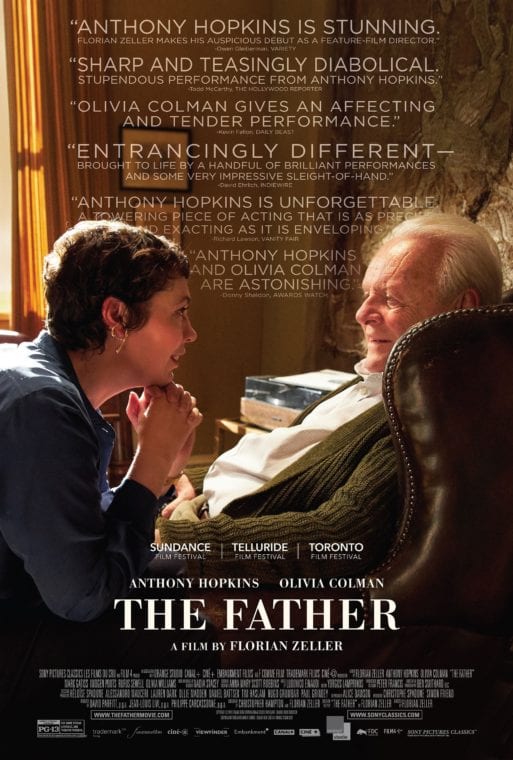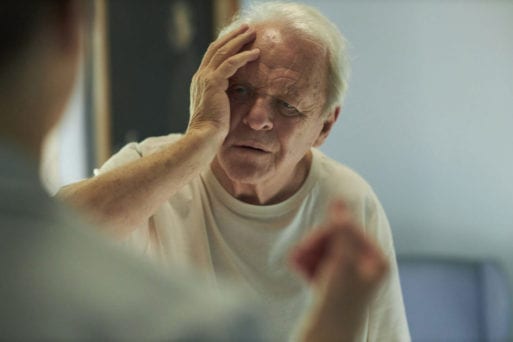
While Anthony Hopkins’ performance in “The Father” won the 83-year-old his second Oscar for best actor in April 2021, it’s not an easy one to watch. Written and directed by French novelist and playwright Florian Zeller, “The Father” explores one man’s spiral into dementia. Life is experienced from the point of view of Anthony, an elderly man in London (Anthony Hopkins), as well as that of his daughter, Anne (Olivia Colman), who attempts to navigate his increasingly confused mental states and sometimes aggressive demeanor.
Perhaps the most disconcerting aspect of the film is the manner in which Zeller injects the viewer into the experience of dementia. One is never quite sure what day it is, if the characters are who they say they are, or whether they’re in Anthony’s flat or that of his daughter — let alone where Anthony’s elusive watch could have disappeared to this time. It’s hard not to agree with Anthony when he states that “there’s something funny going on.” Watching “The Father” leaves one with the same uncanny sense of disorientation that some report after going through the Virtual Dementia Tour, a simulation exercise that enables participants to experience the sensory reality of those living with dementia.
Zeller had written a play based on watching his grandmother’s descent into dementia, and decided to adapt it for the screen while retaining its contained sense of space. “What I wanted to do is for the audience to recognize the place, because at the beginning, it’s Anthony’s apartment, you recognize the space, the knick-knacks, the furniture,” he told the BBC. “And step by step, always in the background, you have small changes, small metamorphoses in the set, and you never quite know what has happened, but something has happened, so you have the feeling you are in the same place, and yet also somewhere else.”

The viewer experiences confusion along with Anthony Hopkins as his dementia worsens.
The result is a brilliant — if emotionally challenging — depiction of the ongoing confusion, sense of loss, paranoia and relational difficulties that can emerge both for those with dementia and for their caregivers. Anthony alternates between aggression, disorientation and self-pity (“You’re abandoning me. What’s going to become of me?”). He can be heartlessly cruel to Anne, while overly effusive when speaking of his other daughter, Lucy. Multiple caregivers quit, unable to take his belligerence. Yet occasionally, a sense of true understanding and appreciation comes through, such as the moment of lucidity when he turns to his daughter and says, “Anne — thanks. For everything.”
Watching this film may make those caring for people with dementia feel more understood. It will certainly deepen the general public’s knowledge of what those with dementia and their caregivers must be going through — a situation that can leave people not knowing what to say or do. Inevitably, it deepens compassion for the challenges dementia can bring, while forcing each of us to face the grim reality that we, too, may one day walk in Anthony’s impossibly befuddled shoes. “I feel as if I’m losing all my leaves,” he cries at the end, hugging himself. “The branches and the wind and the rain.”

 “The Father,” written and directed by Florian Zeller
“The Father,” written and directed by Florian Zeller


 How Dare You Die Now!
How Dare You Die Now!
 Debating Medical Aid in Dying
Debating Medical Aid in Dying
 “Help Me, Helen”
“Help Me, Helen”














